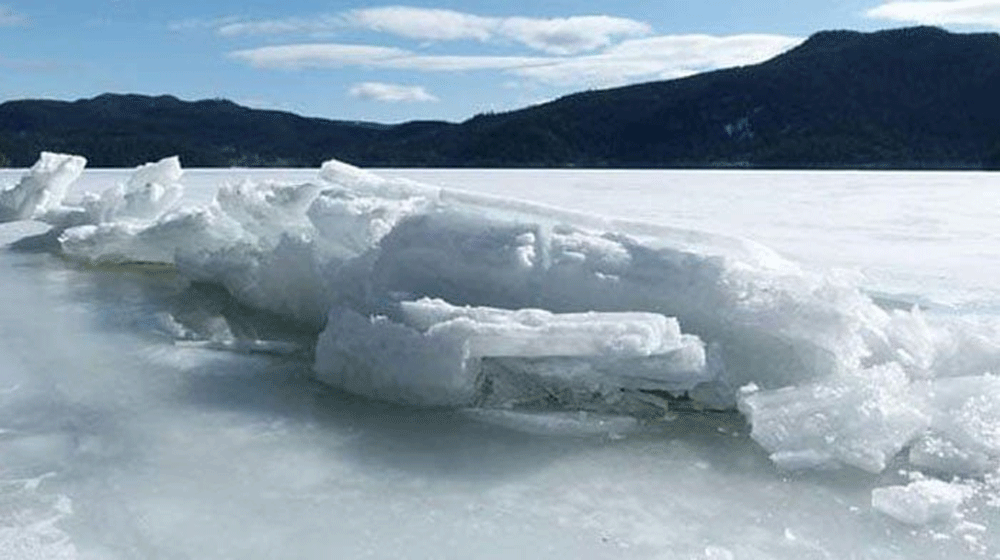It has been six months since the Glacial Lake Outburst Flood (GLOF) Project had been launched by the government funded by an international organization, the Green Climate Fund (GCF).
The GCF approved a $37 million funding for the GLOF Project despite India’s objection. In fact, it released a sum of $10 million in October 2018.
However, the Ministry of Climate Change (MoCC) has not started any work on the project yet, owing to inter-departmental issues. The funding for this community-based disaster risk management can be canceled because of these problems.
Notably, the GCF has issued a letter to MoCC seeking an update on the project. According to the officials, the funding stands at risk of cancellation if the project does not start soon.
The project under question is dubbed as GLOF-II in Northern Pakistan. It is a continuation of the four-year ‘Reducing Risks and Vulnerabilities from GLOF in Northern Pakistan’ (GLOF-I) project.
ALSO READ
Moving Glacier Creates Another Attabad-like Lake in Hunza
GLOF are sudden incidents that can release millions of cubic meters of water and debris that can lead to the loss of property, livelihoods, and above all, lives in the remote and impoverished mountain communities. Over 7.1 million citizens of Gilgit Baltistan (GB) and Khyber Pakhtunkhwa (KP) are vulnerable to the risk.
GLOF-II
GLOF-II intends to scale up the GLOF-I from its original two districts (one each in KP and GB) to cover 15 districts, impacting 29 million people, i.e., 15 percent people of Pakistan.
Under this project, 95 percent of the households will be able to receive early warnings and take the necessary actions. Moreover, the project entails a revision of at least two policies to deal with or incorporate GLOF risk management.
The project also involves setting up 250 small-scale engineering structures to reduce the effects of GLOF events on people’s lives. The relevant steps include tree plantation, mini-dams, and controlled drainage.
Moreover, 50 weather-monitoring stations and 408 river discharge sensors were also to be set up under this project along with the provision of relevant training, 240 water-efficient farming technologies, and reforestation of 35,000 hectares of land.





















